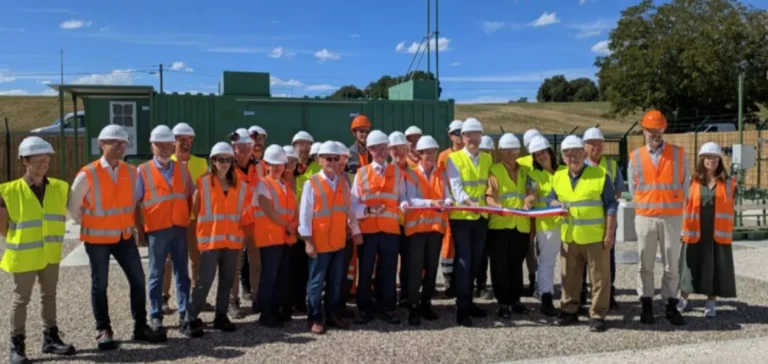Gas infrastructure operator Teréga and distribution network operator GRDF (Gaz Réseau Distribution France) have inaugurated a new biomethane backfeed station in Moncrabeau, located in the Lot-et-Garonne department. This joint initiative is part of a strategy to strengthen the integration of renewable energy into the existing gas grid.
Optimising the flow of green gas
Traditionally, gas flows from the transmission network to the distribution network. A backfeed station reverses this flow by transferring biomethane injected locally into the main transmission system, enabling it to reach other consumption areas or storage sites. The Moncrabeau facility, designed to handle up to 650 Nm³/h, has been built with the capacity to scale up alongside local production growth.
The project, launched in December 2024, marks the second installation of its kind by Teréga, following a similar site in Auch. It complements GRDF’s work in expanding gas distribution infrastructure in rural areas, amid continued growth in the biomethane sector in Nouvelle-Aquitaine.
A partnership rooted in local territories
The project was developed in cooperation with local authorities, the energy syndicates of Lot-et-Garonne and Gers, and several technical partners. This collaborative approach aims to maximise the value of local production while securing supply to the national network. Teréga and GRDF reaffirm their goal to build infrastructure suited to decentralised production, relying on agricultural potential and region-specific energy needs.
Nouvelle-Aquitaine currently hosts 71 sites injecting biomethane into the network, with an annual capacity exceeding 1,500 GWh—enough to heat approximately 375,000 homes. To support this momentum, network operators are deploying adjustment tools like backfeed stations that help stabilise flows based on seasonal consumption.
Adapting the gas network capacity
In Lot-et-Garonne, further projects are under consideration to expand the regional network. Cooperation between Teréga, GRDF and local stakeholders supports the progressive transformation of infrastructure to accommodate increasing injected volumes. This effort helps enhance the flexibility of the gas system in the South-West while strengthening the region’s role in the national biomethane landscape.






















